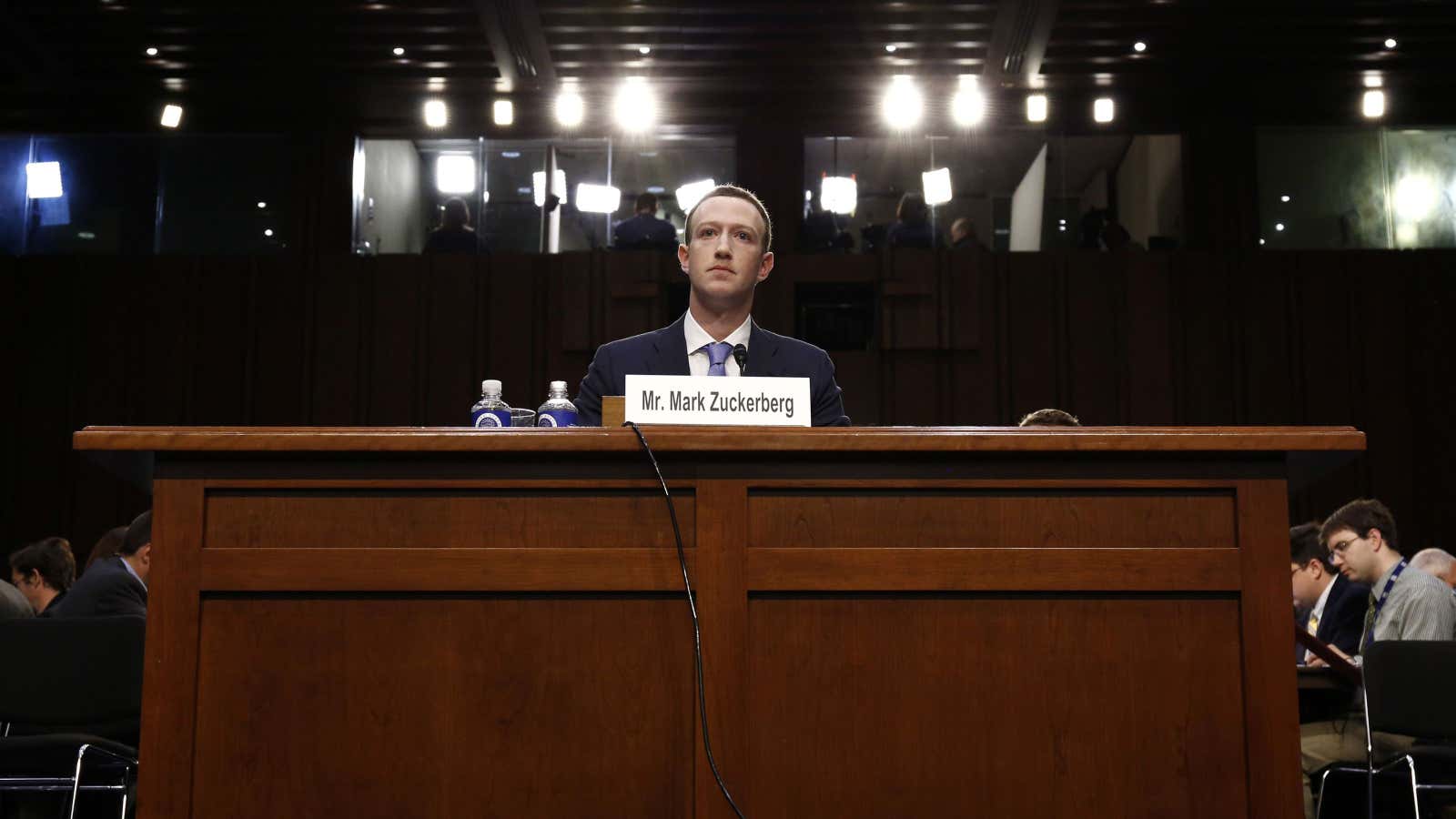Mark Zuckerberg battled his way through congressional testimony on April 10 as one US senator tried to pin down the Facebook CEO on a single question: Is Facebook a monopoly?
Republican senator Lindsey Graham of South Carolina asked Zuckerberg to name his biggest competitor. Zuckerberg responded by outlining three “categories” of companies, starting with one category that included big tech companies like “Google, Apple, Amazon, and Microsoft.”
A frustrated Graham cut him off. “If I’m upset with Facebook, what’s the equivalent product I can go sign up for?” he said. “I’m talking about real competition you face … I’m not talking about categories.”
The Facebook CEO weaved around the question, citing a statistic that “the average American uses eight different apps to communicate with their friends and stay in touch.” Graham finally stated the question on many people’s minds.
“You don’t think you have a monopoly?” he asked.
“It certainly doesn’t feel like that to me,” Zuckerberg responded, to some laughter in the room.
Feelings are unlikely to interest the US government if it comes time to decide whether Facebook is actually a monopoly. The question, in fact, is not easy to answer.
Facebook dominates digital advertising on social media, controlling the majority of such spending. It relies on advertising for 98% of its profits. But Google is actually bigger, raking in $35 billion in total digital ad dollars in the US in 2017 (mostly through search and YouTube), while Facebook claimed $17.4 billion.
Together, the duopoly controls 84% of global digital advertising dollars (paywall), excluding China. Yet smaller players like Snapchat and Amazon (in the ad sense) are nipping at their heels.
This means Facebook doesn’t meet the textbook definition of a monopoly, in which company secures a dominant share in its market through improper conduct, allowing it to set prices or exclude rivals. But Facebook could still fall under anti-trust regulation for anti-competitive behavior. Critics have cited Facebook’s blatant copying of rivals such as Snapchat, and systematic acquisition of potential competitors such as Instagram and the teen compliment app tbh, as evidence that Facebook is shutting out rival and harming users.
The decision about how to regulate tech giants may actually come down to regulators’ view of the public good, says Diana Moss, an economist and president of the American Antitrust Institute. She said in an interview with Quartz last year that existing anti-trust law empowers government agencies to regulate more than just monopolistic pricing, which is unlikely for a free service like Facebook. Governments can also prohibit practices that unfairly exclude competitors or harm customers, according to Moss, which means that Facebook may find itself in the crosshairs.
“The community is going to have to identify and articulate clear theories about market power and how it’s being used to harm consumers and smaller businesses,” Moss said. She noted the key distinction for platforms like Amazon and Facebook will be if they are seen as subject to competition, or insulated from rivals.
“If [companies] remain open to competition, and smaller businesses can intermediate on the platform in an open and non-discriminatory way, then you start addressing the root of the market power problem,” she said. If not, she warned, “you have a potential competition problem.”
